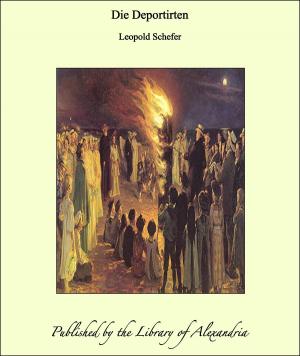Saturday Night Thoughts: A Series of Dissertations on Spiritual, Historical, and Philosophic Themes
Nonfiction, Religion & Spirituality, New Age, History, Fiction & Literature| Author: | Orson Ferguson Whitney | ISBN: | 9781465618856 |
| Publisher: | Library of Alexandria | Publication: | March 8, 2015 |
| Imprint: | Language: | English |
| Author: | Orson Ferguson Whitney |
| ISBN: | 9781465618856 |
| Publisher: | Library of Alexandria |
| Publication: | March 8, 2015 |
| Imprint: | |
| Language: | English |
The Sixth Day.—Saturday, in Christian lands, is a day set apart for house-cleaning, a time for "putting things to rights," in preparation for the Sabbath, the sacred day of rest. Preliminary to the condition of purity, order and quietness especially desirable on that day, the house, in domestic parlance, is "upset"—"turned topsy-turvy." Furniture is moved and dusted, floors are scrubbed, windows cleaned, and stoves polished; the body is bathed, all rubbish burned, and everything done that ought to be done, so that when night is past and glorious morning dawns, the rising sun can smile approvingly on a renovated, sweet and wholesome scene, and the Lord's Day be kept, as He intended it should be, in cleanliness, which is "next to godliness." Is there not something symbolical in all this—something suggestive of things higher? All Things Symbolical.—"All things are in a scale," says Plato; "and begin where we will, ascend and ascend. All things are symbolical; and what we call results are beginnings." If this be true, then is there a symbolism in small things as well as in great, in endings as well as beginnings, including the ending and beginning of the week. Saturday and Sunday are both symbolical, each suggesting and pointing to something above and beyond. The World's Sabbath.—Who among men first recognized in the seventh day a symbol of Christ's Millennial reign, I know not. The reign itself was the theme of a revelation as early as the days of Enoch. But it is obvious that the symbolism of the seventh day does not stand alone. The idea of a greater Sunday carries with it the idea of a greater Saturday, of which all lesser Saturdays are typical; a time of agitation, of strenuous toil and strife, during which all will be made ready for the blest sabbatic era, the period of universal peace. The World's Saturday Night must necessarily precede the World's Sunday Morning. The Apocalyptic Book.—The symbolism of the Sabbath, and the symbolism of other days as well, is plainly indicated in the writings of Joseph Smith. In one place he says—or the Lord says through him: "All things have their likeness, and are made to bear record of Me." We need not be surprised, therefore, to find among the Prophet's teachings this—I quote now from his Key to the Apocalypse: "What are we to understand by the book which John saw, which was sealed on the back with seven seals?
The Sixth Day.—Saturday, in Christian lands, is a day set apart for house-cleaning, a time for "putting things to rights," in preparation for the Sabbath, the sacred day of rest. Preliminary to the condition of purity, order and quietness especially desirable on that day, the house, in domestic parlance, is "upset"—"turned topsy-turvy." Furniture is moved and dusted, floors are scrubbed, windows cleaned, and stoves polished; the body is bathed, all rubbish burned, and everything done that ought to be done, so that when night is past and glorious morning dawns, the rising sun can smile approvingly on a renovated, sweet and wholesome scene, and the Lord's Day be kept, as He intended it should be, in cleanliness, which is "next to godliness." Is there not something symbolical in all this—something suggestive of things higher? All Things Symbolical.—"All things are in a scale," says Plato; "and begin where we will, ascend and ascend. All things are symbolical; and what we call results are beginnings." If this be true, then is there a symbolism in small things as well as in great, in endings as well as beginnings, including the ending and beginning of the week. Saturday and Sunday are both symbolical, each suggesting and pointing to something above and beyond. The World's Sabbath.—Who among men first recognized in the seventh day a symbol of Christ's Millennial reign, I know not. The reign itself was the theme of a revelation as early as the days of Enoch. But it is obvious that the symbolism of the seventh day does not stand alone. The idea of a greater Sunday carries with it the idea of a greater Saturday, of which all lesser Saturdays are typical; a time of agitation, of strenuous toil and strife, during which all will be made ready for the blest sabbatic era, the period of universal peace. The World's Saturday Night must necessarily precede the World's Sunday Morning. The Apocalyptic Book.—The symbolism of the Sabbath, and the symbolism of other days as well, is plainly indicated in the writings of Joseph Smith. In one place he says—or the Lord says through him: "All things have their likeness, and are made to bear record of Me." We need not be surprised, therefore, to find among the Prophet's teachings this—I quote now from his Key to the Apocalypse: "What are we to understand by the book which John saw, which was sealed on the back with seven seals?















